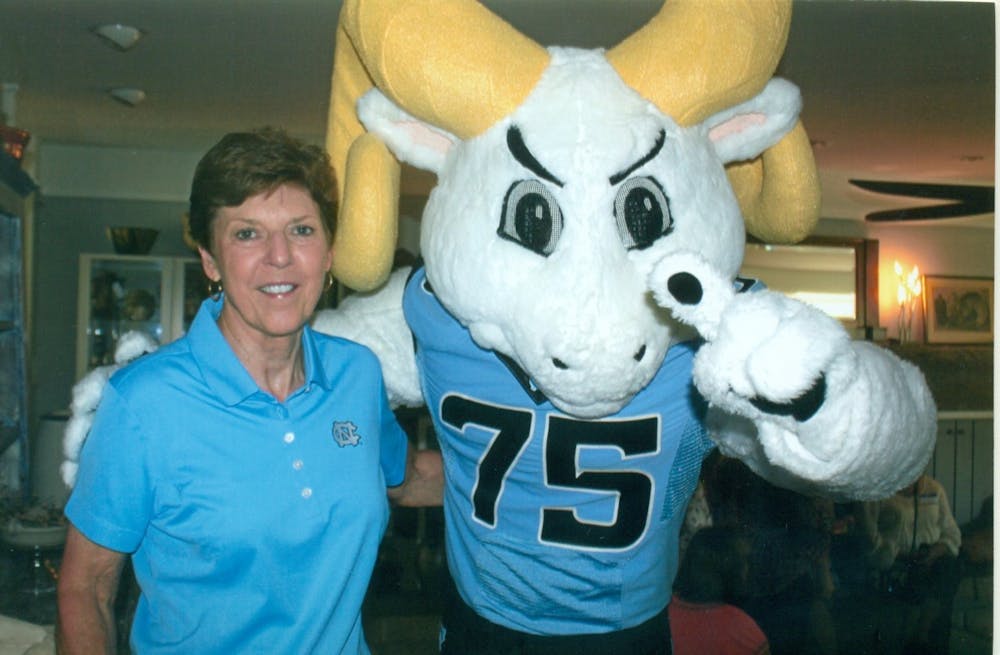Before Beth Miller was given the Women Leaders in College Sports Lifetime Achievement Award, and before she was the highest-ranking female athletic administrator at UNC, she was a full-time assistant professor in the health and physical education department (now known as the exercise and sports science department).
It was there that she started her 40-plus year UNC career that ended back in 2015, one in which she would help oversee UNC-Chapel Hill's full transition to Title IX compliance for women's athletics and become the supervisor for all of UNC Olympic sports.
But in those early days of 1974 when she first became a Tar Heel, she was juggling it all: professor, head coach of the volleyball team and, eventually, UNC athletics business manager.
"My position was actually as a full-time assistant professor, and then I was assigned to assistant coach in two sports, and then I became head coach, but I was still a full-time assistant professor in the physical education department," Miller said. "And across the country, it was pretty much that way. Women's athletics were really just getting started."
In the beginning, all of women's athletics was under the health and physical education department, not the athletics department. And even though Title IX was passed in 1972, schools across the country, including UNC, were slow to comply. When Miller became the head volleyball coach, there were no scholarships for athletes and very little funding for equipment.
"We had uniforms that we wore during the fall during the volleyball season, and when basketball started up, they would wear the same uniforms that volleyball had," Miller said. "Today, you look at the agreement that the athletic department of the University has with Nike, they've got three or four uniforms and all the gear they could possibly use."
Despite the conditions, Miller remembers UNC women's athletics as being among the top programs in North Carolina schools at the time. Because there were no scholarships, schools that had physical education programs or coaching programs attracted the best female athletes.
Schools like ECU, Appalachian State and UNC Greensboro were the powerhouses in women's sports at the time. UNC was right there with them. The volleyball team won four consecutive ACC titles under Miller, and made five postseason tournament appearances.
"We were doing well," Miller said. "And as time moved on and we put more emphasis into it at Carolina, we had scholarships and were able to fund women's athletics to the level that we became one of the leaders."



